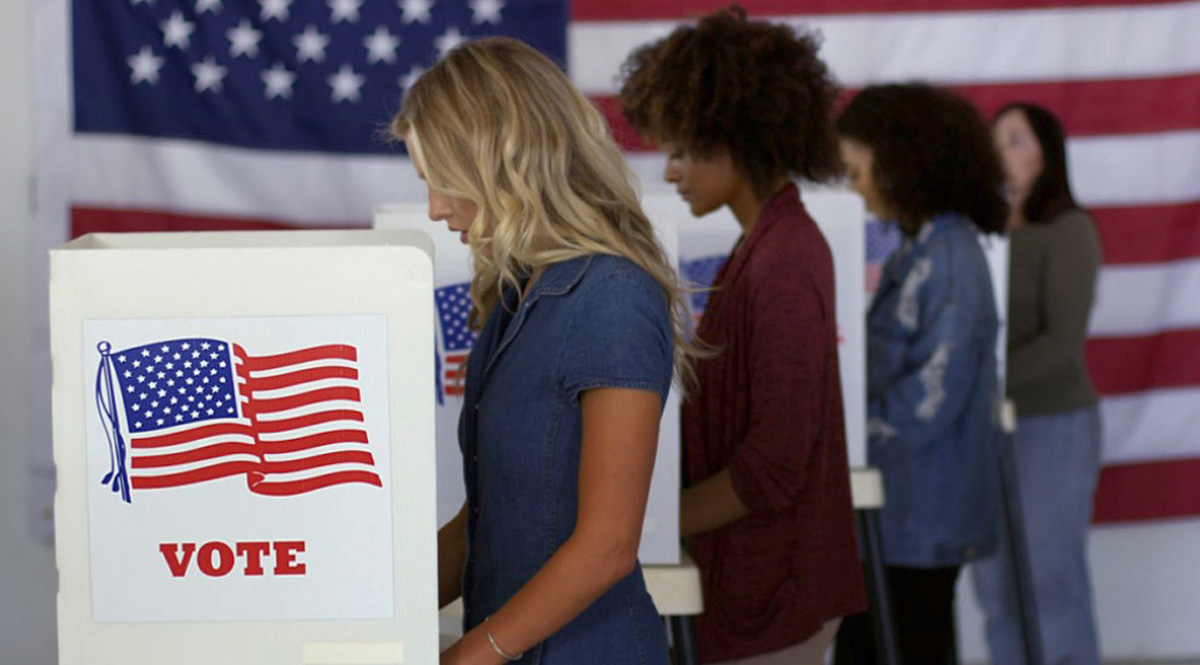By Julio Rivera,
In the United States, the debate over the timing and security of elections has intensified in recent years.
As our republic faces evolving challenges, one proposal that can possibly lead a new charge of reforms stands out: separating state and federal elections, with federal elections held on Federal Tax Deadline Day. This move could bring about several benefits, from enhanced voter verification and security to promoting fiscal responsibility among elected officials.
Among the major issues that were debated before and after the 2020 election was the variance of standards for what constituted a legal vote from state to state. Some states require a valid ID to be shown when casting a vote in person while some states do not, among other various jurisdictional anomalies related to legal ballot harvesting and voter registration methods.
Constitutional issues were also debated as a result of some key states enacting changes to election protocols in 2020 by either executive order at the state level or as a judicial measure due to the unprecedented circumstances presented by the COVID-19 pandemic.
These changes sparked the controversial Texas v. Pennsylvania case which alleged that Georgia, Michigan, Pennsylvania, and Wisconsin violated the United States Constitution by changing election procedures through non-legislative measures.
Ultimately, the Supreme court opined that Texas lacked Article III standing to sue other states over how they conducted their own elections, and the case was dismissed, with only Justices Alito and Thomas disagreeing with the dismissal.
Separating State and Federal Elections
Firstly, separating state and federal elections would allow for a more focused and efficient electoral process.
Currently, in many states, voters must navigate a complex ballot featuring both state and federal candidates, along with various ballot measures and local races. This can lead to confusion and voter fatigue, potentially diluting the impact of each vote.
By holding state and federal elections on different dates, voters can better concentrate on the issues and candidates at each level of government. This separation could also lead to increased voter turnout, as voters would have more time and energy to research and engage with the candidates and propositions on their ballots.
Higher Standards for Federal Elections
When it comes to federal elections, the standards for verification of voter status and security should be stringent. The federal government holds immense power and responsibility, and ensuring the integrity of federal elections is paramount to upholding the principles of our constitutional republic.
Federal elections should be subject to comprehensive verification processes, including strict identification requirements and measures to prevent fraud and tampering. This could involve implementing advanced technology, such as blockchain or biometrics, to secure voting systems and ensure the accuracy of results.
Moreover, federal election officials must collaborate closely with state and local authorities to share information and resources, creating a unified front against any attempts to undermine the electoral process. This collaboration could include cybersecurity measures to safeguard against foreign interference and domestic threats.
New National Election Day on Federal Tax Deadline Day
Moving federal elections to Federal Tax Deadline Day, typically in mid-April, serves multiple purposes.
Firstly, it symbolizes the connection between civic duty and financial responsibility. Just as citizens are required to fulfill their tax obligations to support the functioning of government, they should also actively participate in the democratic process to hold elected officials accountable.
Furthermore, tying Election Day to the tax deadline could incentivize greater fiscal responsibility among elected officials. Taxpayers who are frustrated with wasteful government spending may think twice about voting for candidates or the party they perceive to engage in “tax and spend” policies.
This alignment of Election Day with tax day serves as a reminder to elected officials that they are accountable to the taxpayers who fund government operations.
Promoting Informed Voting
Lastly, holding federal elections on Federal Tax Deadline Day provides an opportunity to promote informed voting.
Taxpayers are keenly aware of how their hard-earned dollars are allocated by the government. By aligning Election Day with tax day, voters are encouraged to consider the fiscal policies and priorities of candidates before casting their ballots.
This could lead to a more engaged and educated electorate, fostering a political culture where elected officials are held accountable for their actions and decisions. Additionally, it encourages candidates to be transparent about their fiscal plans and demonstrate a commitment to responsible stewardship of taxpayer funds.
Separating state and federal elections and holding federal elections on Federal Tax Deadline Day offers numerous benefits to Americans in the ongoing battle between what has become an elitist ruling class and everyday citizens that still view America as a “people’s government.”
It streamlines the federal electoral process which affects not only the United States, but most of the rest of the world. It enhances the security and integrity of federal elections, promotes fiscal responsibility, and encourages informed voting.
By implementing these reforms, we can strengthen our democratic institutions and empower citizens to better play an active role in shaping the future of our nation.
Julio Rivera is a business and political strategist, cybersecurity researcher, and a political commentator and columnist. His writing, which is focused on cybersecurity and politics, is regularly published by many of the most respected news organizations in the world. Read Julio Rivera’s Reports — More Here.
Crossposted with Newsmax.

